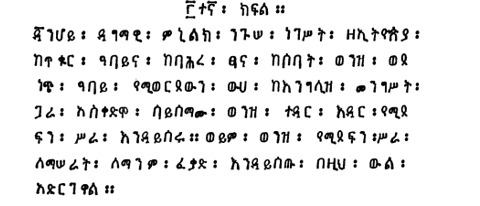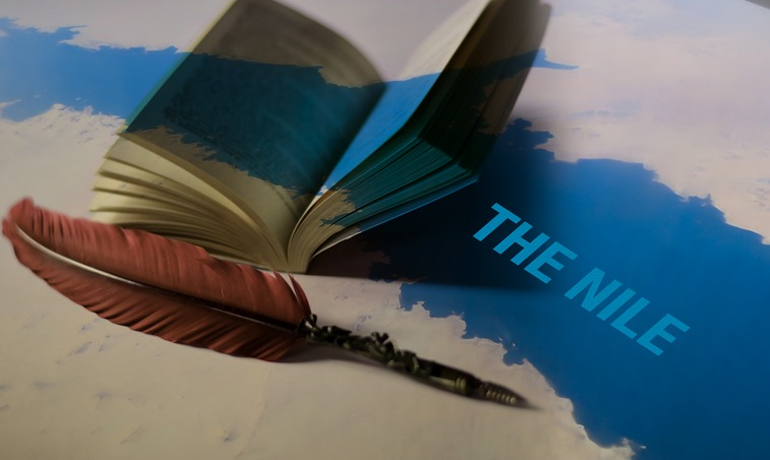The history of water use in the Nile basin is riddled with biased, one sided colonial treaties and agreements between colonial powers and their protectorates. Since 1891, a series of agreements have been crafted by colonial powers in the region, mainly the United Kingdom, with the sole aim of ensuring that the water volume reaching Egypt from Nile tributaries does not decrease. This was not to benefit Egypt per se, but rather to ensure the massive United Kingdom (UK) owned cotton plantations in Egypt that fed their textile industries in England would not suffer.
The agreements of 1891, 1902, 1906, 1929, 1934, 1949 including the infamous 1959 agreement were all done in the same spirit. In this article I want to dive deeper into the 1959 agreement, explore its provisions and expand on why this agreement is the bane of our existence and the root cause of all that is wrong in the Nile Basin now. Before that however, I will elaborate briefly on the above listed agreements to provide context.
The 1891 agreement between the UK and Italy delimits the spheres of influence of these two colonial powers in the Eastern Africa region, and in Article 3 of this agreement obliges Italy not to undertake irrigation works on the Atbara River (Tekeze River) that may alter the rate of flow of the Nile water.
The 1902 Agreement, a border agreement signed between Ethiopia’s Emperor Menelik and the UK establishes the boundaries of British rule along the border between Sudan and Ethiopia and further states in Article 3 that Ethiopia engages not to construct or allow to be constructed any works across the Blue Nile, Lake Tana, or the Sobat, that would arrest the flow of their waters into the Nile without prior agreement with the UK (and the English version also adds Sudan).

“His Majesty the Emperor Menelek II king of Kings of Ethiopia engages himself towards the Government of his Britannic Majesty not to construct, or allow to be constructed , any works across the Blue Nile , Lake Tsana or the Sobat which would arrest the flow of their waters into the Nile except in the agreement with his Britannic government and the Government of the Soudan”. Excerpt from English version of 1902 Agreement
There are multiple issues with this treaty. For one, the Amharic and the English versions have serious disagreements in content and interpretation. The English version states not arresting the waters of the Lake Tana, the Blue Nile and the Sobat while the Amharic version only states not arresting the water going from the Blue Nile and Lake Tana to White Nile. In addition, the English version states that Ethiopia has committed not to do work without agreement with the UK and the Sudan, while there is no mention of the Sudan in the Amharic version. There is the famous argument over what “arrest the water” means compared to the Amharic “te dar dar medefen.” Moreover, some historians are unsure about the validity of the 1902 agreement as a legitimate legal document because of the issues around its signing and the fact that the original document could not be found in the British archives. Moreover, when the UK recognized the annexation of Ethiopia by Fascist Italy in 1936, it, in essence, breached the agreement as it denounced the sovereignty of Ethiopia, and hence any agreements that the UK had before with sovereign Ethiopia are expected to be null and void. And since there was no revisit of this agreement after Ethiopia overcame its annexation, the 1902 agreement should, in principle, be null and void.
The 1906 agreement between the UK, France and Italy signed after news of the ill health of Emperor Menelik states that these three countries respect the sovereignty of Ethiopia. However, if things change, meaning should Emperor Menelik die and “the status quo in the country is disturbed,” these countries would work together to secure their respective interests. Article 4 of this provision particularly states, “the interest of Great Britain and Egypt in the Nile basin, especially as regards to the regulating of the waters of that river and tributaries (due consideration being paid to local interests) without prejudice to Italian interest mentioned in Paragraph b”.
There was also another agreement in 1906 between the Congo and the UK with the similar sentiment which stated that “the government of the independent state of the Congo undertake not to construct, or allow to be constructed , any works on or near the Similki or Isango River, which would diminish the volume of water entering Lake Albert, except in agreement with the Soudanese government”.
In 1925 there was an exchange of notes between the UK and Italy regarding gaining the concession of the Ethiopian government to build a dam at Lake Tana, for the purpose of controlling the headwaters of the Blue Nile with the UK explicitly stating its position of protecting the hydraulic interests of Egypt and Sudan.
The Exchange of Notes between the UK and Egypt in 1929, later came when the UK wanted to expand its agriculture into Sudan. Egypt raised concerns with the UK stating that while it understands that Sudan needs to use more water than it currently does from the Nile for its development, it has “always been anxious of encouraging such developments” and that it will continue with this policy of theirs. Egypt explicitly stated that it will only agree with an increase in the quantity of water use by the Sudan as long as it does not infringe on its historical and natural rights and its requirements of agricultural expansion subject to assurances of Egyptian interests. This agreement allocated 48 BCM of the Nile water to Egypt and 4 BCM to the Sudan.
In 1949, another insulting agreement was inked between the UK and Egypt; the 1949 Exchange of Notes between the UK and Egypt over the construction of the Owen Falls dam in Uganda. This agreement was a clear indicator of UK and Egyptian encroachment into the sovereignty of other states. In this agreement, the UK and Egypt agreed that the plans and specifications of the dam that would be built in Uganda will be approved by Egypt and Uganda! In addition, the UK and Egypt agreed that a resident engineer stationed at the dam will instruct Ugandan authorities on the discharge from the dam! This is the same request that Egypt had on the GERD, to have a say in the operations of a sovereign dam. Here is the precedent for that.
Finally, the infamous 1959 agreement between Egypt and Sudan.This agreement was prompted when Egypt wanted to build the High Aswan Dam and went to the World Bank for funding. The World Bank requested a water use agreement for the basin as a prerequisite for funding. Egypt wanted to present the 1929 agreement it had with the Sudan. But the Sudan, being a free country and not a colony of the UK at this time, rejected the 1929 agreement and requested a revision of the 1929 agreement paving the way for the 1959 agreement.
This agreement, starting from its full name (Agreement between the Republic of Sudan and the United Arab Republic of Egypt on the full utilization of the waters of the Nile) is an insult to the Basin. This agreement is a manifestation of two countries, which contribute none of the Nile waters, agreeing to utilize the “full” capacity of the Nile as if the previous injustices were not enough! In this agreement these two countries increased their previous “shares” in the 1929 agreement by building a reservoir at Aswan and sharing the benefits from the dam. The net benefits from the dam at Aswan, the Sudd el Ali reservoir, was expected to be around 22 BCM. Sudan would get 14.5 BCM and Egypt 7.5 BCM from this increase, raising the shares of the two countries. Egypt would get 48 + 7.5=55.5 BCM and Sudan would get 4+ 14.5=18.5 BCM of the Nile waters.
In addition to this, the Sudan and Egypt openly agreed that should there be any concerns raised by other Nile basin countries the two countries will agree beforehand and present a unified front against these questions. As if this is not enough, the treaty under the general provision also acknowledges that “since other riparian countries on the Nile basin besides Egypt and Sudan claim a share in the Nile waters,” both countries agree to study these claims and adopt a unified view there on. If such studies result in the possibility of allotting an amount of the Nile water to one or the other of these territories, then the value of this amount at Aswan shall be deducted in equal shares from the share of each of the two republics, as if these other riparian countries do not have their inherent shares of the Nile.
The whole provision of the 1959 agreement is an insult to the Nile Basin, a blatant disrespect of the sovereignty and inherent rights of the other riparian countries, the sources of the waters. Ethiopia sent several responses to this disrespectful agreement stating that these unjust biased actions are not legal, recognized or justified and that they will not foreclose the future development endeavours of Ethiopia. This is evident in the numerous communiques and Aide Memoires sent in 1956, 1957, 1980, and even as recently as 1997 when the Toshka project was announced. The upper riparian countries, which were under the British rule, also discarded these biased colonial treaties as soon as they gained their independence. The Nyerere Doctrine issued in 1962 by Tanzania is a great example of this.
There are also other agreements in the Nile Basin such as the 1934 agreement between the UK and Belgium, regarding the water rights on the boundaries of Tanganyika (now Tanzania), Rwanda and Burundi, stating that Belgium is required to return the waters originating from these regions in its control without substantial reduction of flow to the natural bed before they start flowing into British controlled regions.
What is very apparent in all of these agreements is the ruthless commitment of the UK to ensure water flowing to Egypt does not decrease, a position which was later adopted by Egypt and Sudan. The blatant disrespect for national sovereignty and rights of other countries, is also very apparent. While this disrespect for sovereignty might have been explained away by colonialism back in the days, the precedent it has set can be seen in the incredulous and offensive requests of Egypt in The Grand Ethiopian Renaissance Dam (GERD) negotiations. This is where the seeds of entitlement, disrespect for sovereignty and rights of other riparians was sowed and we see it now in full bloom.
This injustice is also the reason why getting rid of these colonial era treaties is of paramount importance. It is the seeds of these treaties that are the banes of our existence in the Nile basin. The Cooperative Framework Agreement (CFA) which was formulated to establish principles, rights and obligations to ensure long-term and sustainable management and development of the shared Nile waters then becomes instrumental in this light. For the first time in the history of the Nile Basin, all 10 riparian countries: Ethiopia, Kenya, Rwanda, Tanzania, Uganda, Burundi, Congo, Egypt and Sudan, Eritrea (as an observer) (South Sudan was not an independent country then) after negotiating the terms of the CFA for 13 years signed in 2010. To date, six countries (Ethiopia, Kenya, Rwanda, Tanzania, Uganda and Burundi) have signed the agreement, and four (except Burundi and Kenya) have ratified it into law. The CFA needs two more ratifications to become the law of the land. However, it is also worth noting that Egypt and the Sudan have rejected this agreement, after 13 years of negotiation, because as I always say, to the one who is used to having the whole pie, any kind of sharing feels like injustice!
This is the current state of affairs in the Nile Basin. The rejection of the CFA by Egypt and the Sudan, together with the plan for other projects to be done jointly by these three countries in the Eastern Nile basin was the fuel that initiated the GERD. The GERD was originally studied as a joint multipurpose project to be executed by the three countries, under the name the Border Dam. The rejection of this plan, the CFA and the whole Nile Basin Initiative (NBI) by Egypt and the Sudan prompted Ethiopia to unilaterally pursue the idea of the Border Dam with a bigger and better vision!This is a good indication of the cost of not cooperating. The GERD could have been and still is an asset to these three countries, but had there been good will to cooperate, all this clamor around the negotiation on the GERD could have been avoided. The Nile Basin has limited resources; it cannot handle any more unilateral and narrow self-serving interests, especially in terms of consumptive water uses such as irrigation. Cooperation is the only way forward, not only because we choose it, but because it is a necessity. Cooperation begins with admitting what is currently wrong in the Nile Basin. That starts with scraping away unjust, skewed and biased water sharing agreements in the basin: 1959 agreement being at the forefront.

Mekdelawit Messay Deribe
Mekdelawit Messay Deribe is a Civil Engineer and an Environmental Scientist working on water science research and Nile related studies. She is an independent researcher and a prospective PhD Candidate at Florida International University and is currently doing research on the reasonable and equitable use of the Nile water. She can be reached at mekdelawitmessay[at]gmail.com.

